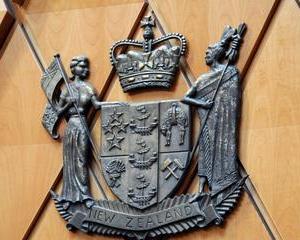An investigation into the wellbeing of a captive kākā in Dunedin could be hampered by a lack of expertise in "behavioural assessment" in New Zealand, a former chief veterinary officer at the New Zealand Veterinary Association says.
Veterinarians for Animal Welfare Aotearoa managing director Dr Helen Beattie, of Dunedin, said despite significant expertise with respect to an animal’s health and nutrition, many vets did not understand a "holistic" view of animal welfare.
"Knowing and understanding surgery and medicine, from a veterinary perspective is not the same thing as being a behaviourist.
"I do a lot of work around the dairy sector and it’s the same thing.
"There will be vets that are very good with the health and nutrition of dairy cows, but they don’t understand the broader contemporary animal welfare framework and how we assess holistic welfare.
"We don’t have a lot of vets in the country that can provide that expert behavioural assessment, no matter what species you’re talking about, but I would say particularly in ... [terms of] wildlife.
"That’s where my real concerns are — we’ve got a systems failure thing."
The Ministry for Primary Industries (MPI) has confirmed officials are investigating a complaint about the welfare of a 26-year-old South Island kākā recently transferred from the Te Anau Bird Sanctuary to the Dunedin Botanic Garden aviary.
Veterinarian Dr Christina Abramowicz — who has known the bird for about 20 years — visited the aviary last week and took video of the kākā, known as Charlie Girl, "weaving" and obsessively grooming her feet.
The behaviours indicated a high level of stress.
Multiple kākā at the Dunedin aviary displayed behaviour that suggested their mental wellbeing was not being looked after, she said.
And one bird’s stress could spread to others.
The Department of Conservation (Doc), which runs the South Island’s captive breeding programme with the native parrots housed at the aviary, said the behaviours observed had been seen before the kākā was transferred.
She was "holding her weight which shows that she is being cared for well" and was still settling in.
People deeply connected to animals and those who worked with them regularly needed to be listened to even if they were not experts, Dr Beattie said.
But in this case, Dr Abramowicz did have expertise and it was troubling that her concerns were not being validated, or acted upon.
"Everyone wants captive breeding programmes where they’re necessary to be successful," Dr Beattie said.
"Everybody’s on board with the fact that this is really important if it’s about ensuring the survival of these amazing animals.
"And — at the same time — I think people would expect the welfare of the animals in such a breeding programme is acceptable.
"At the same time we need to be really mindful of the fact that we can do all sorts of things to animals and they will perform.
"Pigs in cages get pregnant, they raise litters. Chickens in cages produce eggs.
"Just because they are producing the outcomes that we want ... doesn’t mean that their welfare is OK.
"Those two things can be entirely separate."
Advertisement













